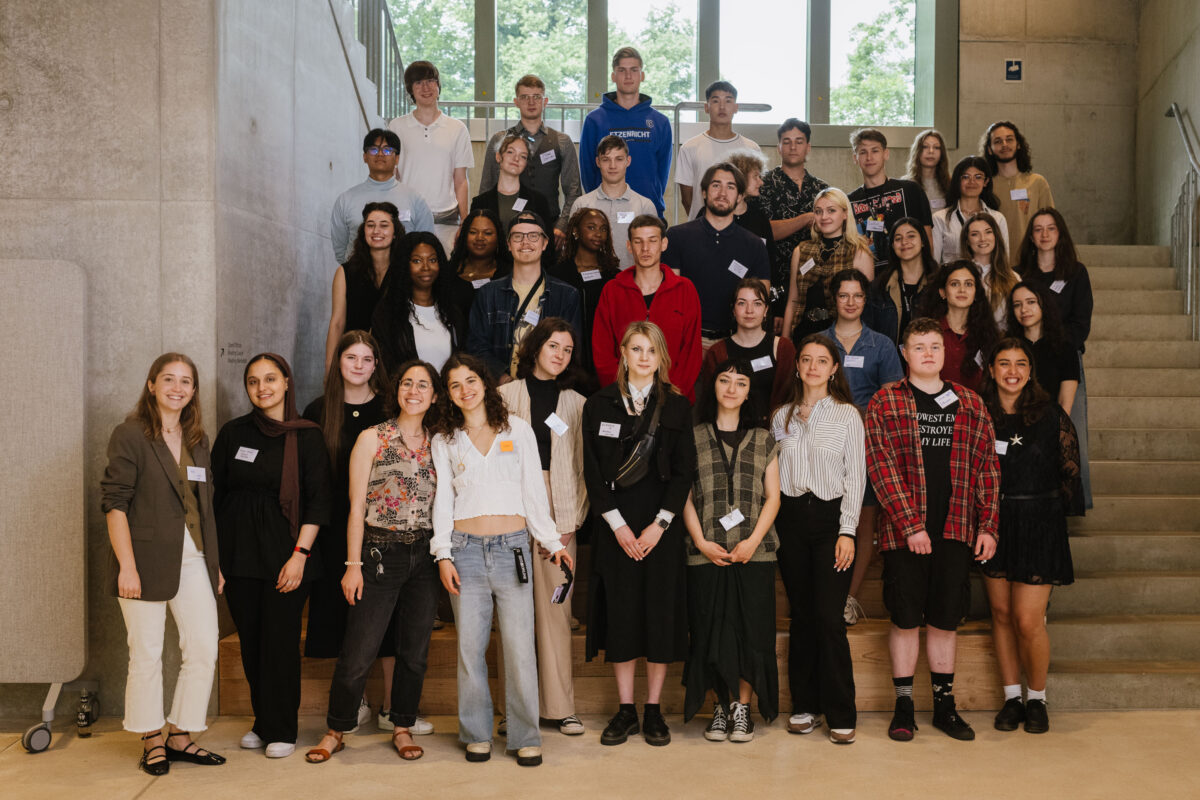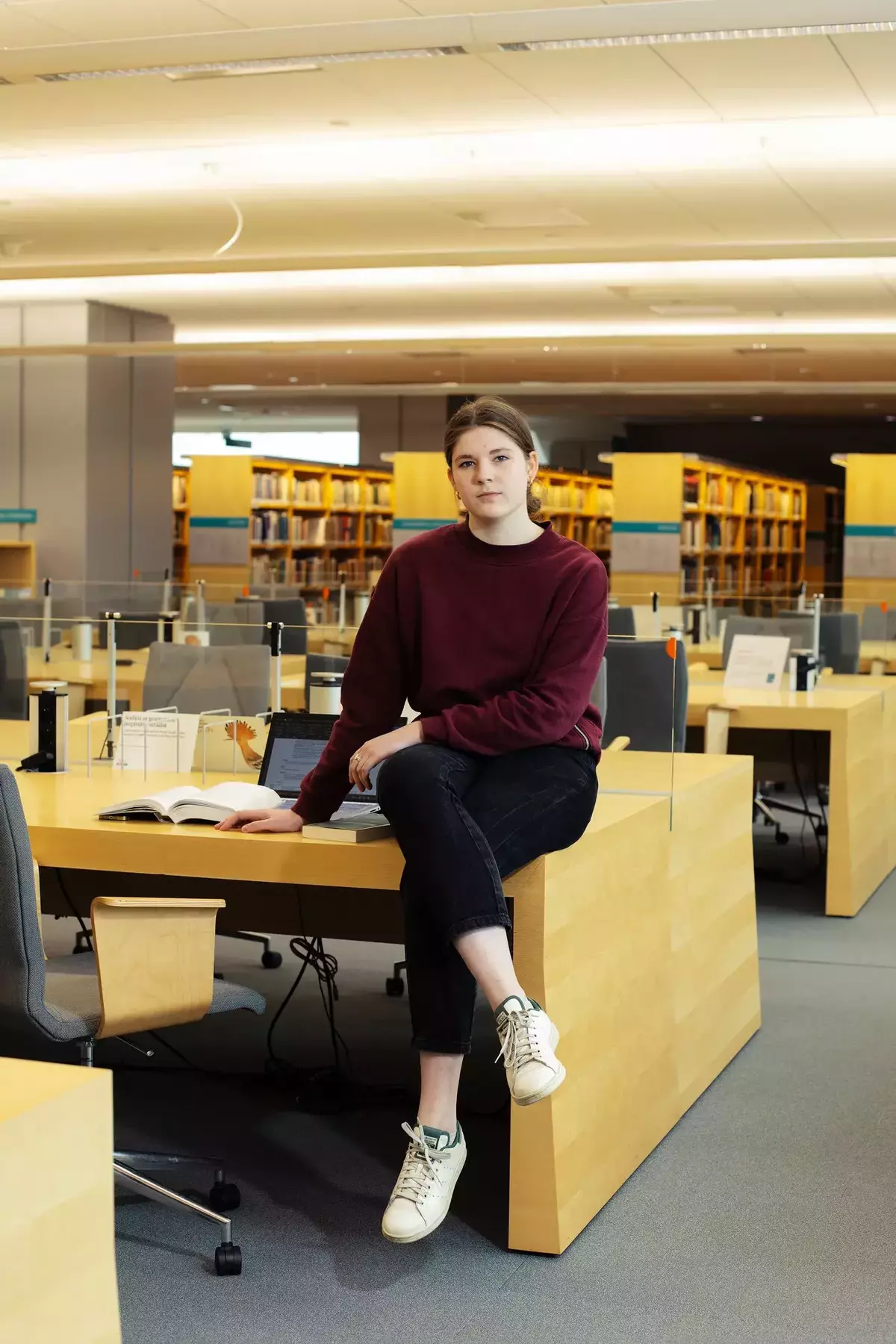Europe Talks x FTV
Last Friday, May 31st, saw young people from nearly every country in the EU come together in Berlin to workshop solutions for Europe in anticipation of the upcoming European Parliament elections. 39 first-time Voters from 24 different countries were selected as applicants and divided into four groups relating to Security, Identity, Migration and Mobility. The First Time Voters Program was organized as part of Europe Talks, in collaboration with ZEIT ONLINE and Are We Europe, and was the first event to be hosted by Publix, a new space for media in Berlin.
The day began with opening speeches from mentors and project leads, including Sara Cooper and Sabrina Faramarzi. Each group was assigned a mentor with expertise in their given topic. The Security group was led by Sebastian Horn, head of AI at DIE ZEIT; the Identity group was led by Nicole Kleeb, Project Manager for Now Europe at the Bertelsmann Foundation; the Migration group was led by Vanessa Vu, editor in the X department at ZEIT ONLINE and co-author of Komm dahin, wo es still ist. Eine Erkundung. ; and the Mobility group was led by Viola Keel, science editor at ZEIT ONLINE.
Under the guidance of mentors and design coaches from Are We Europe, participants embarked on design sprints to answer the four challenge questions presented to each group. First, each group worked with their mentor to create a common framework for approaching the question related to their topic. Then, design coaches were introduced to give strategies for breaking down and forming solutions to the questions. At the end of the day, each group presented their solutions to an audience of journalists, civil society actors, foundations, and other invited guests.
The four challenge questions to be answered were:
Security: how can Europe protect itself against foreign state aggression?
Identity: what should be the role of the EU in coming decades?
Migration: how should Europe manage migration and emigration?
Mobility: what does the future of mobility in Europe look like?
The security group brought a diversity of perspectives to the table. Their proposed solutions included mining more fossil fuels to maintain economic sovereignty under Russian aggression, even at the expense of the planet. They also proposed that the EU invest heavily in creating its own ammonia, which would allow the domestic production of weapons and increase food supply. They also proposed de-weaponization and pacifist culture-building as strong elements of the EU’s foreign policy, and allocating resources for open dialogue between generational groups and education to reduce misinformation among vulnerable segments of the population.
The migration group’s proposals focused on fostering empathy for people with migration history, to help Europe become a leading society in inclusion and integration. They also emphasized the importance of recognizing the humanity of asylum seekers, for example, through individual interviews, and of informing them of their human rights. They also came up with a concrete solution that could be built and implemented immediately: a database for migrants and asylum seekers that captures each person’s education, talents, and interests, which would allow their skills to be matched to areas of need across Europe. The initiative would also interview migrants and asylum seekers to get a holistic view of who they are as people, and help them access information about their rights and available resources.
The identity group started by defining what a “European identity” means, and the tension that exists between feeling “European”, and national citizenship. Their solutions addressed the need to connect European identity with the local realities of people who don’t feel European, particularly young people in rural areas without access to higher education, for whom the EU feels inaccessible. They proposed an “EU in the Palm of your Hands” program to create local chapters of interest groups around the EU, who could connect across different countries for activities and cultural exchanges. They also proposed more opportunities for people without access to elite programs like Erasmus to travel and experience other parts of the EU. Finally, they suggested an improved marketing strategy to drive down the perception of the EU as elitist.
The mobility group also came up with a program to bring the EU to local communities. They suggested a “Wheels of Europe” initiative that would involve a pan-European bus traveling to local communities to promote sustainable transport and giving out incentives along the way. The goal of the program would be to raise awareness of using public transport and the EU rail network. But one of the biggest barriers to using public transport is accessibility. So the group also proposed an EU-wide accessibility survey, where citizens can register issues with their local public transport systems to be fixed. They also proposed a tax for single-use vehicles that would be a sliding scale based on fuel efficiency, which would be put towards subsidizing transport for students, seniors and people of low-income backgrounds in countries with the greatest need.

